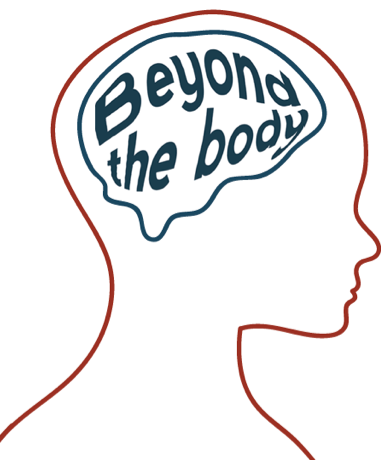Developing a new frame of mind on mental health
June 1, 2016
 Staring at his computer screen on March 28, junior Yona Levitt could not yet fathom the widespread impact that his Facebook post would have on the community around him. Levitt’s post outlined his struggle with depression, an experience that, while not typically discussed publicly, is very common in America.
Staring at his computer screen on March 28, junior Yona Levitt could not yet fathom the widespread impact that his Facebook post would have on the community around him. Levitt’s post outlined his struggle with depression, an experience that, while not typically discussed publicly, is very common in America.
According to the National Alliance on Mental Illness, 43.8 million Americans suffer from a mental health disorder. The National Institute of Mental Health estimates that 2.8 million Americans aged 12 to 17 have had at least “one major depressive episode” in their lives.
Recently in the CESJDS community, several students have opened up about their personal experiences with mental illness. One such student is Levitt.
In his Facebook post, Levitt revealed that earlier this school year he had been overcome with suicidal thoughts and spent time in a mental rehabilitation hospital. Levitt credits relationships with his therapist and family with helping him face his depression and starting him on the road to recovery.
Educational Support Services Department Chair Susan Zuckerman said that it is important for students to feel comfortable sharing their stories. She added that relationships between peers can be just as meaningful as those between family members. She said that students’ relationships with one another can help lead to necessary conversations about the problems they are facing and help them be proactive about their mental health.
Zuckerman specifically cited psychiatrist Edward Hallowell, who believes that happiness is not the result of one’s academic achievement, but rather the “circles” of support and relationships they form with family, friends and coworkers.
For Zuckerman, both the student-student relationships and the student-faculty relationships at JDS contribute to these circles. The goal at JDS is for these relationships to develop into ones where teachers can sense if there is something troubling a student and know to consult that student’s counselor. That talk sets off a collaborative effort among counselors, teachers, students and parents.
High school guidance counselor Rachel Soifer is on the front line when it comes to combating mental health issues. Soifer said that if there is enough concern, she will talk to students and their parents to figure out a next step, which could include referral to a psychologist or a psychiatrist.
Soifer said that having people to talk to is one of the best ways to avert a mental health crisis.
“The most important thing in any community is that individuals feel that they can reach out for themselves or a friend to seek out support, and that a person who is going through difficulties does not feel alone without help,” Soifer said.
Soifer added that one way to help the community is by raising awareness about mental health issues, like the Presha Zman Kodesh has recently been doing. Members of the Zman Kodesh put up flyers around the school and spoke at the Kabbalat Shabbat on May 13 in recognition of Mental Health Awareness Month.
According to Soifer, JDS sufficiently educates students about mental health through the curriculum of the required Human Development class. Physical Education teacher Brian Westerman explained that some of the material in the course “talks about the stigma” that people usually think of when they approach mental health issues.
Despite the class’ unit on mental health, alumna Sivan Shilo (‘16) believes that JDS needs to improve its mental health education by expanding the reach of the Human Development curriculum.
“They focus so much on drugs, alcohol and sex, but only talk about mental health for maybe a day,” Shilo said.
Shilo first got involved with mental health awareness when she joined the organization Umttr after one of her friend’s parents took his own life. She went to a fundraising walk for suicide prevention and there met Sue Rosenstock, the co-founder of Umttr who inspired Shilo to further pursue advocacy work. Umttr is a nonprofit organization dedicated to preventing youth depression, bullying and suicide.
While Shilo recognizes that many students shy away from discussing mental health, she encourages them to get involved in raising awareness on the sensitive issue.
“I 100 percent think there needs to be more awareness for mental health,” Shilo said. “People are still scared to talk about mental health and suicide when it’s such a big issue.”
While many like Shilo believe that being involved in suicide prevention and advocacy for others is essential, watching over one’s own mental health is also important. According to neuropsychologist William Stixrud, two major causes of depression are sustained long-term stress and lack of sleep. Stixrud explained that issues like an excess workload, personal problems at home and sleep deprivation can all cause a release of harmful chemicals in the brain. This reaction can cause the brain to have a “bias” towards negative thoughts.
Sophomore Jonah Loshin has firsthand experience with anxiety disorders escalating into depression. Loshin, who has been diagnosed with attention-deficit hyperactivity disorder, came to JDS at the start of the 2015-16 school year mainly for JDS’ educational support services.
“Earlier this year, I suffered with depression which made my grades a lot worse,” Loshin said. “Since then, I have been recovering slowly. It is due in large part to my parents, the school guidance and the Structured Study Hall teachers.”
Loshin believes that raising awareness for mental health issues is a strong method of combating the stigma that surrounds them.
“Depression is belittled not on purpose, but society as a whole doesn’t treat mental disorders as diseases which they really are,” Loshin said. “A good way to bring awareness is to have people who are willing to talk about their difficulties with mental health explain them. Having a real person who has gone through or is struggling with a real problem talk is better than just reading about it. It makes it a lot more personal and a lot more real.”
According to Stixrud, this lack of awareness is also compounded by how uncomfortable people feel talking about mental health.
“Many of us grow up thinking that if we have a real problem with anxiety or if we aren’t happy, then it’s a flaw in our character,” Stixrud said. “Many people feel ashamed that they’re weak.”
The way to solve this problem, Stixrud said, is to acknowledge the prevalence of mental health issues. As more people recognize that they have a fairly common disorder, they will be more likely to seek help and be open about the illness. Stixrud also said that it is important to understand that mental health issues are often caused by physical problems, like genetics and chemical imbalances in the brain. Once people gain a better understanding of the true nature of mental illness, Stixrud believes that the stigma will dissolve.
Though Loshin does believe that awareness of mental health issues could help society as a whole to better combat mental illness and the uncertainty around it, he thinks that assisting someone one-on-one is difficult because only a person who is struggling can understand his or her own feelings.
“It is really difficult to help people with mental health issues because nobody else except that person really understands what they are going through and how they think,” Loshin said.
While Levitt also recognizes that it is hard to understand exactly what someone with a mental health issue may be thinking, he still believes that sharing his story has helped others deal with mental health issues. Levitt offered support to anyone who needs it in his Facebook post describing his battle with depression, and people have already reached out.
“There’s also a lot of people, though not as many [as the 119 who shared the post], who told me that they’re going through something similar or that my post inspired them to reach out for help,” Levitt said. “That’s what touched me the most, that I actually inspired people to reach out for help when that was the main goal with my message.”

